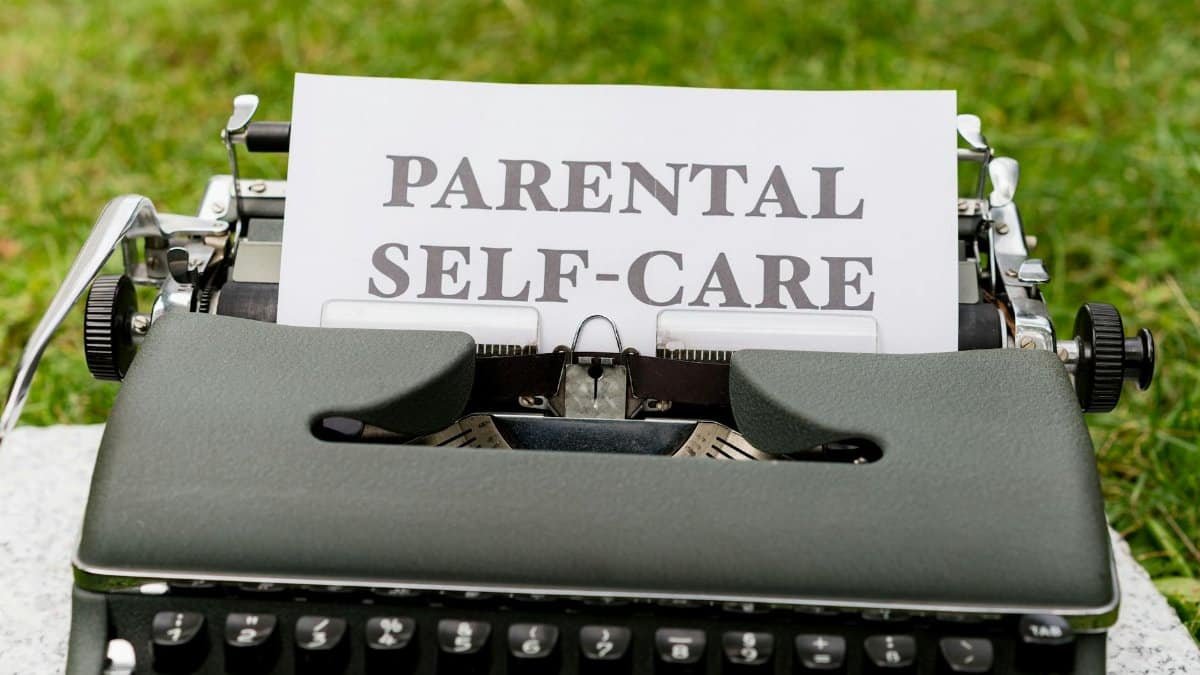What if chasing perfection is actually the biggest barrier to real progress? In a world where social media amplifies flawless facades, many Americans are rethinking their drive for impeccability. A recent study from the American Psychological Association found that 58% of adults report increased stress from perfectionist tendencies, up from 42% a decade ago. This surge highlights a growing need to reframe perfectionism—not as a virtue, but as a habit ripe for transformation. Enter perfectionism reframed: the idea of swapping harsh self-criticism for radical self-kindness. Over one week, this approach promises to quiet the inner critic and foster genuine growth. It’s not about lowering standards; it’s about building resilience through compassion. As mental health conversations evolve in 2025, such experiments offer a practical antidote to burnout.
The Roots of Perfectionism in Modern Life

Perfectionism often starts innocently enough. A child praised for straight A’s grows into an adult who equates worth with flawless performance. In the U.S., this mindset thrives amid competitive job markets and relentless productivity culture. Consider the tech worker in Silicon Valley, staring at a screen late into the night, tweaking code until it’s “just right.” But research shows this pursuit can backfire. A 2023 meta-analysis by psychologists at York University revealed that maladaptive perfectionism correlates with higher rates of anxiety and depression.American Psychological Association’s summary echoes this, noting how societal pressures amplify the issue.
Yet, reframing begins with awareness. Online discussions often reveal raw frustrations. One anonymous account described the exhaustion of constant self-doubt: “I’d redo tasks endlessly, convinced they weren’t good enough. It stole my joy.” This sentiment resonates widely, especially among millennials juggling careers and family. By examining these roots, we see perfectionism not as inherent, but learned—and thus, changeable.
Defining Radical Self-Kindness

Radical self-kindness isn’t fluffy affirmation. It’s a deliberate practice of treating yourself with the empathy you’d offer a close friend. Imagine spilling coffee on a report; instead of berating yourself as “clumsy,” you might say, “Everyone has off moments—let’s clean it up and move on.” This shift forms the core of perfectionism reframed.
Experts like Kristin Neff, a pioneer in self-compassion research, emphasize its components: mindfulness, common humanity, and self-kindness. Her work, detailed in studies from the University of Texas, shows that such practices reduce self-criticism.Self-Compassion.org’s research page compiles evidence linking it to better emotional regulation. In everyday terms, it’s about acknowledging imperfections without judgment, creating space for authentic effort over unattainable ideals.
A brief snapshot: A teacher in Chicago tried this during a hectic school week. When a lesson flopped, she paused, breathed, and whispered, “You’re doing your best in a tough situation.” The result? Less rumination, more energy for the next day.
Setting Up the One-Week Experiment

Embarking on a week of radical self-kindness requires intention. Start by identifying your inner critic’s favorite phrases—”You’re not good enough” or “This has to be perfect.” Jot them down in a journal. Then, craft compassionate alternatives. For instance, replace “I failed” with “I learned something valuable.”
This setup draws from cognitive behavioral techniques, supported by the National Institute of Mental Health. Their resources highlight how reframing thoughts can alter emotional responses.NIMH’s anxiety disorders page discusses similar strategies for managing perfectionist-driven stress. Keep it simple: Dedicate five minutes each morning to affirmations and evenings to reflection. Track triggers, like work deadlines or social comparisons, common in 2025’s hybrid work environments.
Variety keeps it engaging. One participant shared anonymously online: “I set phone reminders for kindness breaks. It felt awkward at first, but by day three, it clicked.” Such small steps build momentum, turning theory into habit.
Day-by-Day Breakdown: Early Challenges

The first few days often feel clunky. On day one, you might catch yourself slipping into old patterns during a morning commute—criticizing a minor delay. Pause there. Whisper a kind phrase. It’s awkward, like learning a new dance step.
By day two, resistance builds. A study from Harvard’s positive psychology lab notes that initial discomfort is normal when disrupting ingrained habits.Harvard’s positive psychology resources suggest persistence pays off, with participants reporting reduced stress after consistent practice. Real-life echoes this: A New York freelancer recounted fumbling through emails, her usual self-lashing replaced by, “It’s okay to edit later.” The shift didn’t erase errors, but it softened their sting.
Midweek, patterns emerge. Sensory details heighten the experience—the warmth of a comforting tea while journaling, or the quiet relief after forgiving a forgotten errand. These moments illustrate how perfectionism reframed fosters presence over perfection.
Midweek Momentum and Insights

Around day four, something shifts. The compassionate voice grows louder, drowning out the critic. This is where radical self-kindness reveals its power in perfectionism reframed. Tasks that once paralyzed now feel approachable.
Insights pour in. You might notice how perfectionism ties to fear of judgment, a trend amplified by social media. Pew Research’s 2024 report on digital well-being found 65% of adults feel pressure to present idealized lives online.Pew Research’s social media and mental health report underscores this, linking it to heightened anxiety. Applying kindness here means scrolling with grace, recognizing shared human struggles.
A vivid example: During a family dinner, a parent in Texas forgave herself for a burnt meal. Instead of spiraling, she laughed it off, saying, “We’re all in this together.” The evening flowed better, highlighting kindness’s ripple effects on relationships.
Overcoming Setbacks with Compassion

Not every day sails smoothly. Setbacks hit—perhaps a project flops at work, reigniting the critic. Here’s the test: Treat the lapse kindly. This meta-compassion is key to sustaining change.
Research from the University of California, Berkeley’s Greater Good Science Center supports this. Their studies show self-compassion buffers against failure’s emotional toll.Greater Good Science Center’s self-compassion topic page offers tools for navigating such moments. In practice, it means acknowledging the slip without self-flagellation: “That was tough, but I’m human.”
One anonymized story captures this: “On day five, I snapped at my kid after a long day. Instead of hating myself, I apologized and hugged us both. It healed faster.” Such resilience builds, transforming perfectionism from foe to teacher.
Measuring Progress and Lasting Changes

By week’s end, assess the impact. Did stress dip? Energy rise? Journal entries often reveal subtle wins—like completing tasks without endless revisions.
Long-term, this reframing integrates into daily life. A 2025 survey by Gallup indicated that self-compassion practices correlate with higher job satisfaction among U.S. workers.Gallup’s State of the Global Workplace report touches on well-being factors, including mental health strategies. Participants report sleeping better, relating kinder.
Reflect on a broader scale: In communities from Seattle to Miami, groups are forming to share these experiments, fostering collective kindness. It’s a quiet revolution against perfection’s grip.
Extending the Practice Beyond One Week

One week is a spark; sustaining it demands creativity. Incorporate kindness into routines—meditation apps or buddy check-ins. Adapt for contexts like parenting or athletics, where perfectionism lurks.
Experts advise gradual expansion. Neff’s ongoing research suggests compounding benefits over months.Self-Compassion.org’s research articles detail longitudinal studies showing sustained mood improvements. For instance, a runner reframed missed goals as “progress points,” enhancing enjoyment.
Challenges persist, but so does growth. As 2025 unfolds, perfectionism reframed could redefine success, one compassionate step at a time.
Real-World Applications in Daily Routines

Apply this to work: Before a meeting, affirm, “My input matters, even if not perfect.” At home, it eases household tensions.
Anecdotes abound. A Boston accountant, post-experiment, tackled taxes with less dread. “Kindness made it bearable,” she noted. Broader trends show workplaces adopting wellness programs emphasizing self-compassion, per SHRM reports.SHRM’s mental health and wellness page highlights these shifts.
It’s versatile, addressing everything from fitness goals to creative pursuits, proving perfectionism reframed’s wide reach.
Potential Pitfalls and How to Navigate Them

Beware complacency—kindness isn’t permission for laziness. Balance it with accountability. If kindness feels forced, scale back.
Studies warn of “toxic positivity,” but true self-compassion embraces all emotions. The Mayo Clinic’s guidelines on resilience stress this nuance.Mayo Clinic’s resilience training page provides strategies. Navigate by checking in: Does this foster growth or avoidance?
One reflection: “I worried it’d make me soft, but it sharpened my focus.” Honesty ensures authenticity.
The Broader Impact on Mental Health

Reframing perfectionism ripples outward. Reduced self-criticism lowers overall stress, per CDC data on mental health.CDC’s mental health page links such habits to better outcomes.
In 2025, with rising awareness, this could shift cultural norms. Communities benefit as individuals model kindness, creating supportive environments. It’s a step toward collective well-being.
Personal Reflections from Practitioners

Those who’ve tried speak volumes. “It freed me,” says one. Another: “Perfectionism reframed my entire outlook.”
These voices, drawn from workshops and forums, underscore transformation. They remind us: Change starts within, but echoes far.
Resources for Further Exploration

Dive deeper with books like Neff’s “Self-Compassion.” Apps like Insight Timer offer guided practices.
Local groups in cities like Austin provide support. Online, vetted sites abound, ensuring accessible entry points for all.
